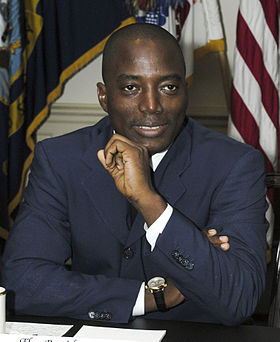Progress in peril in Africa’s Great Lakes region?
November 11, 2015

Amid a number of ongoing international crises that have captured the world’s attention, Tom Perriello, the U.S. State Department’s special envoy for the great Lakes Region of Africa, affirmed, “More attention from Washington and more attention from around the world on the Great Lakes region is important.” On November 6, he joined Michael O’Hanlon of the Brookings Africa Security Initiative; Anthony Gambino, former USAID mission director in the Democratic Republic of the Congo (DRC); and Kristin McKie, assistant professor of African Studies and Government at St. Lawrence University for a discussion on security trends in the region.
Each country–Burundi, the DRC, and Rwanda—is facing its own set of unique, yet intertwined obstacles that often bring them to the brink of crisis. Yet as the panelists noted, despite growing political tensions in the region and disregard of American policy aims, upcoming election cycles and ongoing democratic transitions—if successful—provide the opportunity for prosperity and economic growth.
Burundi

Although promising until just a few months ago, Burundi is now on the edge of a renewed civil war and provides a cautionary tale of what happens when political leaders try to extend their stay in power beyond constitutional limits. With more than 200,000 refugees and a few hundred conflict-related deaths already, the country is in the throes of a humanitarian disaster. The United States is maintaining hope for Burundi, Perriello said, but it also has to plan for the worst.
In a more critical take, Gambino blamed weak American policy for enabling President Pierre Nkurunziza, who has now “led his country into greater violence, instability, and perhaps now even larger-scale violence and chaos.”
Democratic Republic of the Congo

While the DRC has navigated from war to peace and conducted effective democratic elections, President Joseph Kabila is mandated to leave office in 2016. McKie hinted, however, that a strange clause in the constitution, “[T]he president stays president until the new president is elected,” is creating slippage and delaying elections. Constitutional quirks like these on the continent are giving leaders like Kabila openings to extend their terms or amend constitutions through democratic channels.
“DRC is in electoral crisis right now,” Gambino explained. Nothing has been done to prepare for new elections, and the two top officials from the electoral commission recently resigned. Moreover, President Kabila’s confidants have continually undermined, obstructed, and delayed the process in order to continue enriching themselves at the expense of the Congolese people.
If a post-Kabila DRC does emerge soon, however, O’Hanlon suggested it might be ripe for additional American assistance, up to and including a Security Force Assistance Brigade to better prepare the army and police forces for internal challenges.
Rwanda

Noting efforts by Rwanda’s president, Paul Kagame, to amend the constitution and allow him to run for a third term in office, Perriello explained that, “Any country that believes that its stability rests entirely on one individual is a recipe for instability.” Gambino noted that the proposed constitutional amendment could give Kagame another 17 years in power, adding that it makes President Obama’s calls for term limits in the region “toothless and meaningless.”
Hopes for progress
But these efforts will only go so far. Outside powers cannot just lecture domestic leaders; they must support in good faith what those in the opposition and civil society want. The panel agreed that while the region has seen significant economic, security, and political improvement on balance, Burundi, the DRC, and Rwanda must be persuaded that those gains cannot be tied to a single individual or administration.
Brendan Orino
AFRICA in focus
No comments:
Post a Comment